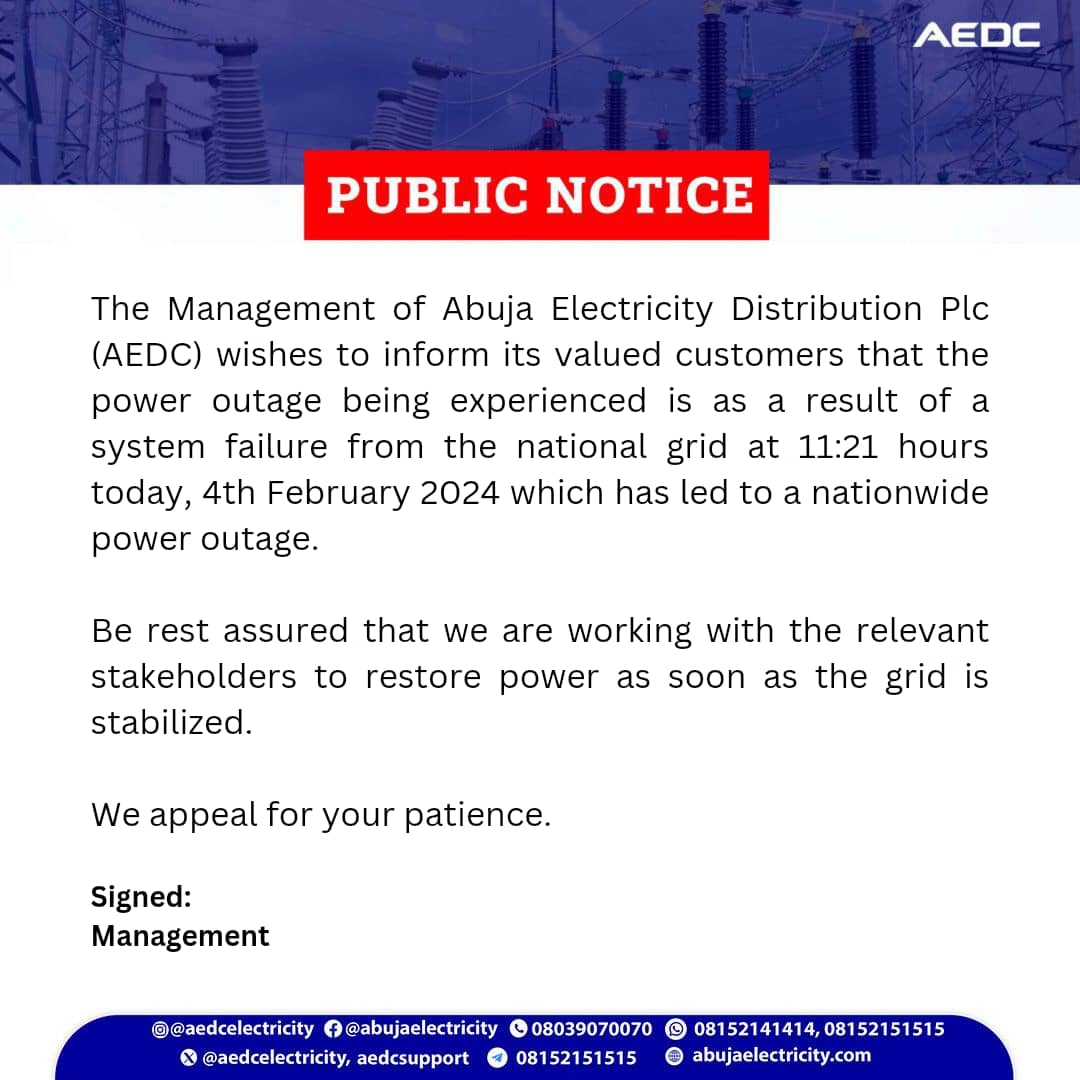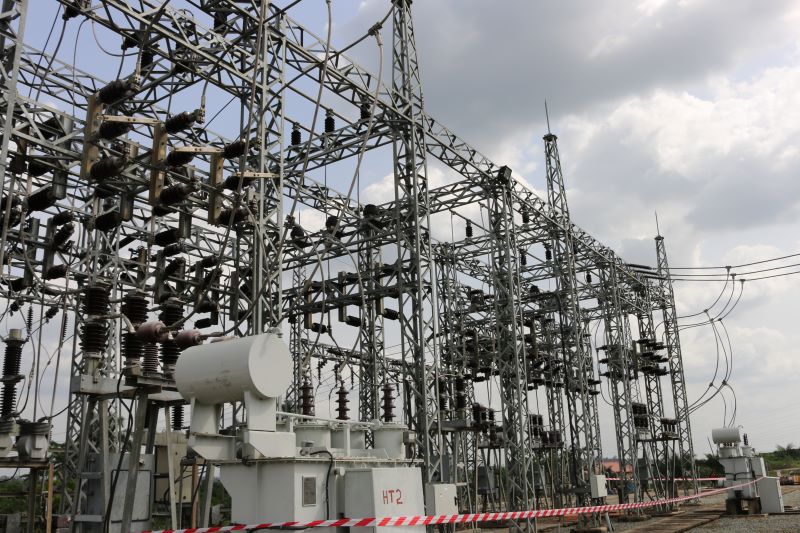Nigeria’s electricity grid on Sunday collapsed yet again, throwing several cities including the nation’s capital Abuja, into darkness.
The Abuja Electricity Distribution Company (AEDC) announced Sunday that the collapse occurred at around 11 a.m.
“The Management of Abuja Electricity Distribution Plc (AEDC) wishes to inform its valued customers that the power outage being experienced is a result of a system failure from the national grid at 11:21 hours today, 4th February 2024 which has led to a nationwide power outage,” the company said.
“Be rest assured that we are working with the relevant stakeholders to restore power as soon as the grid is stabilized. We appeal for your patience,” it said.

A similar notice was posted by other DISCOs.
Kaduna Disco, in a statement signed by its Head of Corporate Communication, Abdulazeez Abdullahi, informed its customers at 12:45pm via its X customer service handle, "Dear Esteemed Customers, the Management of Kaduna Electric wishes to inform its esteemed customers that it has lost bulk power supply hence the outage being experienced currently in Kaduna, Sokoto, Zamfara and Kebbi states. Power supply shall be restored to our customers as soon as we receive same at load centres across our franchise. We sincerely apologize for the inconvenience.
Related Articles
The latest collapse occurred less than two months after the national grid system collapsed in December and Nigerians were thrown into darkness.
In recent years, Nigeria’s power sector has experienced broad challenges such as electricity policy enforcement, regulatory uncertainty, gas supply, transmission system constraints, and major power sector planning shortfalls.
Last Friday, the Nigerian government attributed the main cause of poor power supply in the country to the low supply of gas to generating companies (GenCos).
Nigeria’s Minister of Power, Adebayo Adelabu, who disclosed this in a statement, said “Power supply during the yuletide improved, but unfortunately, we’ve experienced setbacks in the new year. After investigations, it’s clear that the main cause of poor power supply is the low supply of gas to GenCos.”
The Transmission Company of Nigeria (TCN) had in January said that there was a gradual decrease in available generation into the grid due to gas constraints.
The company said this impacted the quantum of bulk power available on the transmission grid for onward transmission to the distribution load centres nationwide.
The TCN has yet to officially speak on the issue as of press time Sunday afternoon.





